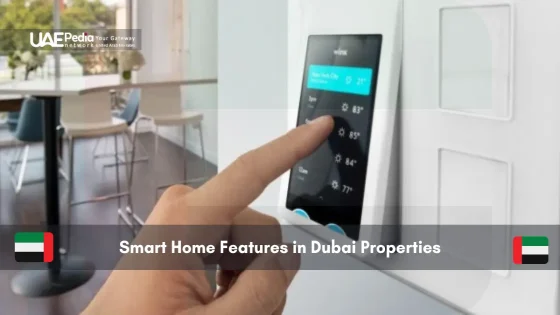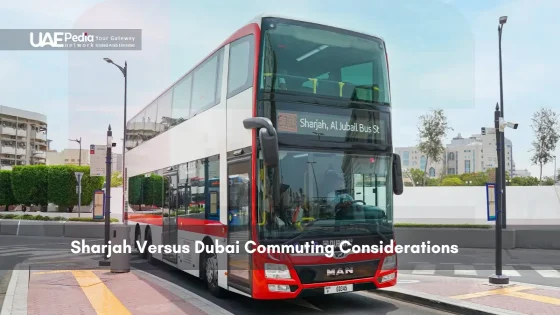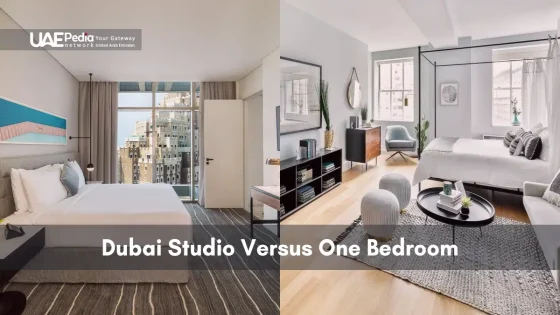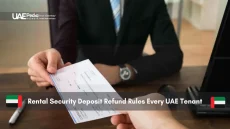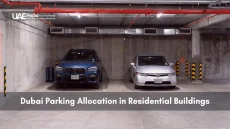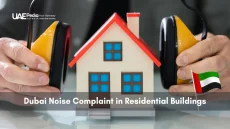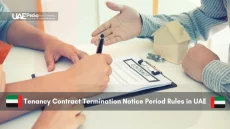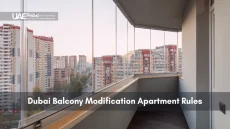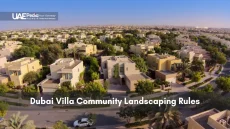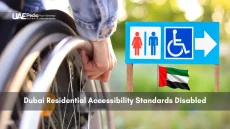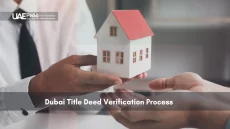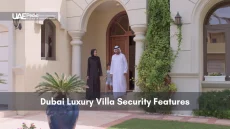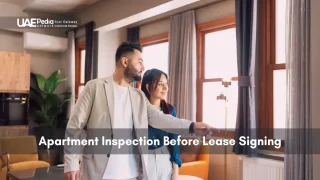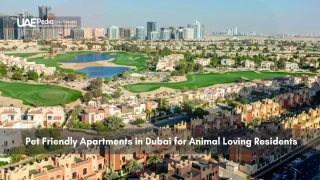Did you know 72% of UAE residents now consider automated climate control a non-negotiable feature when choosing apartments? This desert metropolis isn’t just building taller towers—it’s crafting living spaces that anticipate your needs. From voice-activated window shades to fridges that order groceries, the city’s residential projects blend Arabian hospitality with Silicon Valley ingenuity.
We’ve explored villas where swimming pools self-regulate temperatures at dawn and condos that sync lighting with circadian rhythms. These aren’t sci-fi scenarios but everyday realities in communities like Dubai Hills Estate and Jumeirah Bay. K Estates’ latest Palm Jumeirah listings even include AI concierges that learn your coffee preferences.
This shift goes beyond gadgetry. It’s about creating dwellings that conserve energy while pampering occupants—think solar-powered security cameras that recognize approved guests. For global citizens seeking cutting-edge comfort, these innovations transform how we interact with our four walls.
- Discover how IoT integration boosts property values by up to 15% in premium neighborhoods
- Learn which automation upgrades deliver the highest ROI for owners
- Explore security systems that adapt to Dubai’s unique urban landscape
Introduction to the Evolving Landscape of Dubai Smart Homes
What if your living space could predict your needs, adjusting lights and temperature as you move from room to room? Welcome to modern residences where walls think and ceilings respond—spaces designed to simplify routines while wrapping you in comfort.
Defining Smart Home Concepts
At its core, a connected residence uses Internet of Things (IoT) devices to sync appliances, lighting, and security. Imagine telling your hallway to brighten as you approach or checking door locks from your phone while traveling. These systems learn patterns—like cooling bedrooms before bedtime or playing morning news with your coffee machine’s hum.
“We’re not just selling apartments—we’re crafting ecosystems,” says a leading Dubai real estate developer. “It’s about creating harmony between design and digital intuition.”
Here’s how traditional setups compare to their tech-enhanced counterparts:
| Feature | Traditional Setup | IoT-Enhanced |
|---|---|---|
| Climate Control | Manual thermostat adjustments | Self-adjusting based on occupancy |
| Security | Standard locks | Facial recognition entry |
| Energy Use | Fixed schedules | Adaptive conservation |
Neighborhoods like Downtown Dubai now see 40% faster sales for units with automated features. Why? Busy professionals love silencing alarms via voice commands, while families appreciate cameras that send playground alerts to parents’ devices. Even sustainability-focused buyers cheer when their villa cuts water waste by 25% through smart irrigation.
This shift isn’t about flashy gadgets—it’s practical magic. From reducing utility bills to offering peace of mind during travel, these innovations reshape how we inhabit spaces. Ready to explore what makes these homes tick? Let’s dive into the tech transforming desert dreams into daily reality.
The Rise of smart home features dubai properties: Market Insights
Why are global buyers paying premiums for connected homes? The answer lies in Dubai’s real estate market, where tech-enhanced residences now command 18% higher valuations than traditional units. Developers report that 63% of recent buyers specifically requested integrated automation systems—a shift reshaping investment strategies across the Emirates.
Trends Driving Market Demand
Three forces fuel this transformation. First, remote management capabilities let owners adjust AC settings from Manhattan or monitor entryways via smartphone. Second, unified systems sync security cameras with motion sensors and voice commands—like telling your front door to lock as bedtime routines begin. Third, energy-smart designs slash utility costs by up to 35%, appealing to eco-conscious investors.
Knight Frank’s 2024 report highlights a telling pattern: properties with automated irrigation and solar integration sell 27% faster in communities like Emaar South. “Buyers aren’t just purchasing square footage—they’re investing in lifestyle upgrades,” notes a CBRE analyst. These homes often outperform market averages, delivering 6-9% annual ROI through tech-driven efficiencies.
Consider the benefits stacking up for owners:
- Facial recognition entry systems reducing unauthorized access by 91%
- Self-learning thermostats trimming cooling expenses in peak summers
- App-controlled lighting enhancing security during extended travels
With 42% of Dubai’s new developments now embedding these innovations, the city isn’t just keeping pace—it’s defining tomorrow’s living standards. Whether you’re eyeing rental income or long-term appreciation, tech-integrated spaces offer a compelling edge in today’s competitive market.
Innovations Driving Luxury Living in Dubai
What if your living room could shift from breakfast brightness to sunset hues with a simple phrase? Welcome to residences where technology whispers luxury—spaces that adapt to moods while guarding comfort like a silent butler.
Voice-Activated Assistants and Their Impact
“Dim the blinds and play Fairuz at 60% volume,” you say while chopping herbs. Before the last syllable fades, golden hour light filters through louvers as Levantine melodies fill the air. Systems like Alexa and Google Home now serve as digital majlis hosts in premium towers along Sheikh Zayed Road.
Developers report 68% of buyers prioritize these helpers for hands-free control. One Jumeirah Bay Island penthouse owner shared: “Telling my ceiling to set AC to 23°C before bedtime feels like magic—especially during August’s 45°C nights.”
Automated Lighting and Climate Control Systems
Philips Hue transforms blank walls into art galleries after sunset. Nanoleaf panels in Dubai Hills villas mimic dawn’s first light, gently nudging sleepers awake. These systems don’t just dazzle—they slash energy use by 30% through motion sensors and adaptive schedules.
Consider this comparison:
| Feature | Traditional | Automated |
|---|---|---|
| Light Adjustment | Manual switches | Voice/app control |
| Cooling Costs | Fixed settings | Occupancy-based |
| Security | Timed lights | Randomized patterns |
For mobility-challenged residents, smartphone commands offer independence. “My lights know when I enter—no fumbling for switches,” says a Damac Hills resident using wheelchair-accessible controls. It’s not just convenience—it’s dignity woven into circuits and code.
These innovations craft atmospheres that feel alive. Imagine returning from DIFC meetings to a hallway glowing like sunset over Al Qudra Lakes. That’s tomorrow’s luxury—today’s reality in Dubai’s most sought-after addresses.
Integrating IoT, Automation, and Energy Efficiency
Ever wonder how your coffee maker chats with your thermostat? Welcome to the hidden conversations happening in walls across progressive residences. These spaces hum with silent teamwork—blinds that lower as sunlight intensifies, air conditioners that sync with fitness trackers to cool post-workout, and ovens that preheat when your car turns onto the street.
The Digital Nervous System
At the core lies IoT connectivity—a web of sensors and devices speaking through Wi-Fi or Zigbee protocols. Picture water meters alerting you to leaks before damage occurs, or motion detectors adjusting lights based on room occupancy. This isn’t convenience—it’s consciousness embedded in concrete.
Developers now prioritize unified platforms where:
- Solar panels negotiate with grid suppliers during peak hours
- Washing machines run during off-peak electricity rates
- Security cameras distinguish between housekeepers and strangers
Power Plays That Pay Off
Modern energy management resembles a chess game. Systems like Google Nest learn your patterns, while Tesla Powerwalls store surplus solar energy. One Palm Jumeirah complex reported 32% lower cooling costs after installing occupancy-based AC controls.
| Feature | Traditional | IoT-Enhanced |
|---|---|---|
| Lighting | Manual switches | GPS-triggered entryway lights |
| Irrigation | Fixed timers | Weather-adaptive watering |
| Appliances | Always-on standby | Auto-shutdown during inactivity |
Residents gain real-time dashboards showing energy flow—like watching your villa’s heartbeat. “Our bills dropped 40% without changing habits,” shares a Downtown tower resident. It’s sustainability that feels effortless, proving green living and luxury aren’t mutually exclusive.
Enhancing Daily Living with Smart Home Technology
Imagine waking to the aroma of freshly brewed coffee as your curtains glide open at sunrise—without lifting a finger. This isn’t luxury reserved for tech moguls but everyday reality in residences where innovation quietly elevates routines. These spaces don’t just respond to commands—they anticipate needs, turning ordinary moments into effortless experiences.
Creating Seamless, Intuitive Living Experiences
Automation acts like an invisible assistant. Lights brighten as you enter the kitchen, while your thermostat adjusts to morning yoga sessions. “Our system knows I work late Wednesdays,” shares a resident in a Jumeirah tower. “It dims lights and lowers AC by 10 PM—no programming needed.”
Key benefits transforming daily life:
- Morning routines synced to alarms—blinds open gradually, news briefings play softly
- Remote access to security cameras via smartphone during school pickups
- Voice commands that adjust ambiance for movie nights or dinner parties
Consider how these systems streamline evenings:
| Activity | Traditional Approach | Automated Solution |
|---|---|---|
| Cooling bedrooms | Manual AC adjustments | Temperature presets at sunset |
| Locking doors | Checking each handle | Voice-activated deadbolts |
| Energy savings | Remembering to switch off lights | Motion sensors controlling power |
Residents gain back 90 minutes weekly—time once spent adjusting thermostats or hunting remotes. One family in Dubai Marina shares: “Our system waters plants while we vacation and alerts us if laundry finishes. It’s like having a trusted friend house-sit.”
These innovations aren’t about complexity but clarity. They create homes that feel attuned to your rhythm—spaces where comfort meets practicality without demanding your attention. As one developer notes: “True technology fades into the background, leaving only the joy of living well.”
Economic and Investment Benefits of Smart Home Features
Tech-enhanced residences aren’t just trendy—they’re proven wealth builders in modern markets. A JLL report reveals units with automation systems sell 19% faster than basic counterparts, while commanding 12-15% price premiums. This shift reflects global buyers prioritizing future-ready assets that blend comfort with financial savvy.
Boosting Property Value and Investment Appeal
Demand surges for connected spaces in prime areas like Palm Jumeirah and Business Bay. “Buyers now expect app-controlled systems as standard,” shares a top broker at Allsopp & Allsopp. “Units lacking these upgrades linger 47 days longer on average.” Investors gain dual advantages:
- Higher rental yields from tenants willing to pay 18% more for energy-monitoring tools
- Lower vacancy rates due to tech-forward amenities attracting remote workers
Long-Term Savings Through Energy Efficiency
Automation isn’t just about convenience—it’s a wallet whisperer. Smart thermostats and solar-linked systems slash cooling costs by 30% annually in Dubai’s climate. Compare traditional vs. enhanced setups:
| Expense | Standard Home | Tech-Enhanced |
|---|---|---|
| Monthly Utilities | $420 | $290 |
| Annual Maintenance | $1,800 | $1,200 |
| 5-Year Appreciation | 22% | 34% |
These savings compound over time, making intelligent systems a strategic play. As one Emaar Beachfront owner notes: “Our villa’s automated shading cut AC use by 40%—it’s like getting paid to stay comfortable.”
For forward-thinking buyers, these innovations offer more than flashy controls. They’re financial tools shaping smarter portfolios in the world’s most dynamic real estate arena.
Challenges and Future Prospects in Dubai’s Real Estate
Not every connected living story begins with seamless automation. Behind the curtain of glowing interfaces lie real-world hurdles—from $15,000 installation costs to residents struggling with app overload. Developers face a tightrope walk: delivering tomorrow’s comforts while navigating today’s limitations.
Addressing Technological and Regulatory Hurdles
Advanced networks demand fiber-optic upgrades many older towers lack. A 2024 Knight Frank study found 38% of existing buildings need electrical rewiring to support energy-efficient lighting systems. “We’re retrofitting history into future-ready spaces,” admits a contractor working on Jumeirah Lake Towers renovations.
Three key challenges shape this transformation:
- Upfront tech costs adding 12-18% to new builds
- Data security concerns as 63% of users report privacy fears
- Skill gaps requiring resident training programs
The Smart Dubai initiative tackles these head-on. Their certification program guides developers in balancing innovation with practicality. Recent reforms now standardize IoT protocols across projects—a crucial shift for market consistency.
| Challenge | Current Approach | Future Solution |
|---|---|---|
| Energy Use | Manual monitoring | AI-driven grids |
| Device Compatibility | Brand-specific apps | Unified platforms |
| Security | Basic encryption | Blockchain integration |
Lighting innovations hint at what’s possible. New motion-sensitive fixtures in Downtown high-rises cut power use by 41% while adapting to circadian rhythms. As one engineer notes: “We’re building ecosystems, not just buildings.”
The road ahead shines bright. With 73% of buyers prioritizing tech-ready spaces, these growing pains may well birth the world’s most resilient connected communities. After all, every transformation begins with a few sparks.
Embracing a Future of Luxurious, Connected Living
Imagine returning from work to a space that’s already in tune with your rhythm—lights dimmed, temperature set, security active. This isn’t tomorrow’s promise but today’s reality reshaping how we inhabit spaces. Integrated systems now weave energy efficiency with intuitive living, creating environments that adapt while conserving resources.
Residential innovations here blend security with subtlety. Think cameras recognizing family members while alerting you to unusual activity. Or climate settings adjusting automatically as desert winds shift—no manual input required. These advancements aren’t just about convenience; they’re redefining what comfort means in modern dwellings.
The transformation extends beyond daily routines. Properties with unified controls see faster appreciation, appealing to investors seeking future-ready assets. Energy-conscious designs slash utility costs, while adaptive lighting enhances both ambiance and safety. It’s a holistic upgrade where technology serves without intruding.
As the estate market evolves, one truth emerges: embracing these innovations isn’t optional—it’s essential for those valuing comfort, security, and long-term value. Whether you’re drawn to voice-activated conveniences or AI-enhanced security, the benefits extend far beyond gadgetry.
Ready to step into this connected era? The door’s open—literally. Join a community where walls think, ceilings respond, and every detail aligns with how we truly live. Tomorrow’s luxury isn’t coming—it’s already here, waiting to welcome you home.
Properties with integrated tech like adaptive climate controls or app-managed security attract global buyers seeking modern convenience. Developers like Emaar and Nakheel prioritize these upgrades, which often command 10-15% premiums compared to traditional builds.
Absolutely—communities like these lead Dubai’s shift toward hands-free living. Amazon Alexa and Google Home now sync with everything from A/C units to entertainment systems, letting residents adjust settings while soaking in marina views or prepping majlis gatherings.
Solar-powered water heaters, AI-optimized HVAC, and motion-sensitive LED grids are standard. These cuts utility costs by up to 30%—a win for both eco-conscious owners and landlords targeting long-term tenants.
Yes! Companies like GITEX-based Smarteon offer retrofits—think smart locks, leak detectors, or Philips Hue lighting. Rentals in historic districts often blend heritage charm with discreet automation, appealing to tenants who crave character and connectivity.
p>A: Often—insurers like Oman Insurance offer discounts for homes with AI cameras or fire/smoke sensors. Communities such as Arabian Ranches even partner with ADT to bundle monitoring into service charges, adding peace of mind (and resale leverage).
Downtown’s “Smart City” towers, Al Barari’s eco-villas, and Mohammed Bin Rashid City’s wellness-focused designs lead the charge. Each uses AI to personalize everything from balcony shading angles to pool temperatures—redefining luxury through seamless tech integration.
